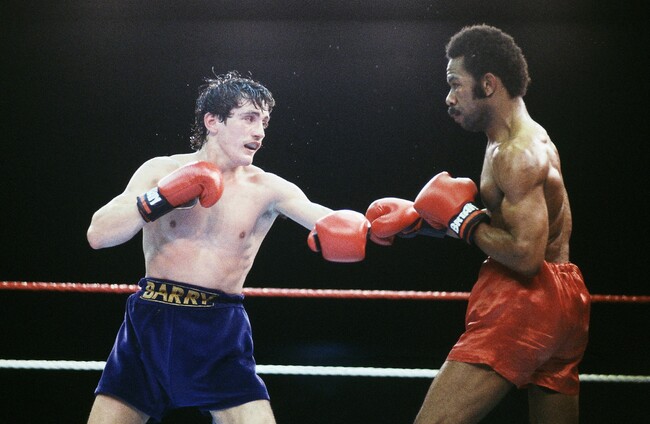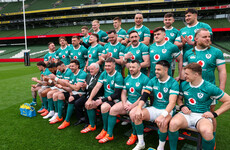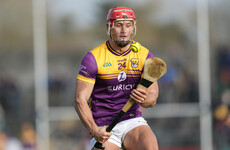THE FOLLOWING PASSAGE is an extract from In Sunshine or in Shadow: How Boxing Brought Hope in the Troubles by Donald McRae.
Barry McGuigan met Eddie Shaw every morning in the National Foresters club in north-west Belfast. The Catholic pub on Stanley Street was a third of a mile from the Immaculata Boxing Club tucked away on Ardmoulin Place.
Close to the interface separating the Falls Road from the Shankill Road, the Immaculata gym was dwarfed by the giant shadow of Divis Tower. The tower rose out of the battered heart of the Divis Flats complex and soared 200 feet into the Belfast sky. It had been built in 1966, as a slab of brutalist architecture, and named after the Divis mountain in nearby County Antrim.
Inside the 20-storey building, 850 flats housed around 2,400 residents. The tower was surrounded by 12 smaller blocks of flats, each being eight storeys high, and it dominated a landscape scarred by barbed wire, IRA slogans, burnt-out cars and gangs of scrawny
kids. A new name had been daubed on the walls of the flats topped by black IRA flags: ‘Bobby Sands. Hero. Saviour.’
The hunger strikes had begun just as Barry McGuigan started training for his professional debut. Any hope of fighting first in Belfast had been set aside. The city felt like a tinderbox. To escape the conflict, Barney Eastwood arranged for Barry to appear on a Charlie Nash bill in Dublin on 10 May. He had two months to prepare with Shaw, whom Eastwood had appointed as his trainer.
Eddie was a decent trainer, but he was not of the same calibre as Gerry Storey. He was competent and compliant and there was no friction between the promoter, trainer and fighter. Conflict and hostility, however, surrounded them.
The Divis Flats carried a fearsome reputation. Their troubling presence was accentuated by the fact that the British army had taken over the top two floors of the tower. As they could not easily get in or out of the Divis Flats by foot, the army used the top of the tower as a lookout point and a landing pad for their helicopters.
The remaining 18 storeys and all the flats housed a community that included some vociferous supporters of the IRA. Barry was less afraid of the paramilitaries than of the kids who watched his and Eddie’s zigzagging dash most mornings from the Foresters to the Immaculata.
Barry had learnt in his first week that walking in a straight line meant certain trouble when the kids treated all pedestrians as amusing targets for their dangerous missiles. They threw an assortment of heavy objects from the highest flats and aimed to maim any stray soul walking past.
As the hunger strikes began, with the rest of Belfast as taut as a tightrope, it made for a chaotic madhouse around the Divis Flats. The kids were nutcases whether they were launching their weapons from eight or 18 storeys.
Above them the army choppers and British soldiers would be watching and waiting, but the kids didn’t care. They just whooped whenever they came close to crushing anyone below. A chair or a stool spiralling down would have cracked his head open and Barry shuddered when the wood splintered on the concrete pavement a few feet from his and Eddie’s weaving run.
He knew that they looked like a comedy duo – a pasty little featherweight with a wispy moustache and his trainer, whose beer belly had him wobbling and wheezing. Barry and Eddie zigged and zagged, nearly tripping over each other as they looked up to check if anything was hurtling towards them.
It felt deadly serious when the kids flung a fridge at them from the top floor of a flat. Barry had to yank Eddie to safety as the fridge crashed into the pavement close to where they had ducked away.
Some days, Barry and Eddie were surprised by the absolute quiet of the Divis Flats. The stillness was unnerving. The next day would be the same but then, as if out of nowhere, the kids would be back, roaring and throwing another deadly object down at them.
Barry soon got used to Eddie’s wayward timekeeping. He would wait for 15 minutes some days before Ned McCormick, who trained fighters at Immaculata, arrived to meet him. Ned had heard that Eddie was running late and so he came over to the Foresters to find Barry.
Steeped in Republican politics, and a respected figure in the community, even Ned was not granted immunity from the madhouse. He was just another target for the crazy Divis Flats kids.
A few weeks after the fridge nearly got him and Eddie, Barry was shocked by an even more surreal attack. He and Ned were doing a 100-yard zigzag through the most dangerous stretch of the tower blocks when they just missed a flying chunk.
‘What the fuck was that?’ Ned yelled.
Barry looked on as, beneath the thunderous delight of the Divis kids, Ned turned the splattered meat and bone over with his foot. It was the back leg of a cow.
Ned and Barry sprinted for the gym. They made it inside safely.
‘I can’t fucking believe it,’ Ned said. ‘We could have had our necks broken by a cow leg.’
‘How did they even get a leg up there?’ Barry asked.
‘Anything goes around here, wee man,’ Ned said.
The Immaculata gym was in the basement. It was a square concrete block, stark in character and with the stink of boxing sweat at its centre. Barry loved its authenticity. It felt to him just like a boxing gym should feel. A big blue ring was in the corner, heavy bags hung from the ceiling, paint peeled from the walls and, even though it was always freezing cold, the big old pillars soon became wet as if they were sweating as much as the fighters.
A driveway leading into the Divis Flats ran right alongside the gym. When the door to the gym was left open they could see the cars careering into the tower block area, which was forbidden territory to outsiders. Some of the kids would go into the city centre and nick a car. They were skilled at breaking in, wiring the car so it would start or simply sticking a little screwdriver into the ignition and turning it until the engine fired into life. The kids knew they had just a brief time to go for a joyride before the police spotted them. So they would tear along the alleyway next to the gym and then do a handbrake turn and flip round and come back in the opposite direction.
One tearaway lost control of his joyride and the car smashed through the front door of the Immaculata. Francie McCullagh was hitting the punch bag when the car crashed into the gym. He was so angry he began screaming ‘You fucking little bastards!’ at the driver and his joyriding partner.
Francie was older, and much bigger as a light-heavyweight, and Barry had heard that he had done time inside. He and his father were rumoured to have IRA links, but Barry asked no questions. It was enough to know that, on international trips for Ireland, Francie was one of his funniest teammates. But he had a temper and that afternoon he was intent on hitting the joyriders.
‘Francie, Francie!’ Ned yelled at him. ‘Leave them.’
Ned knew that they came from families filled with paramilitary headcases. It would be a mistake to antagonise them. Ned jumped over the bonnet and wrapped his arms around his incensed fighter while the joyriders disappeared. Barry leant against the bag he had
been hitting while he watched Ned calm Francie. Two policemen carrying automatic rifles appeared at the ruined door and looked in quizzically.
‘It’s all right, lads,’ Eddie Shaw said with a cheery wave. ‘Just another day in the madhouse.’
The policemen shrugged and turned away. Barry McGuigan, just weeks from his professional debut, returned to work. He sank jabs, hooks and uppercuts into the swaying bag as if the solitude of boxing might offer him peace from the lunacy.
In Sunshine or in Shadow: How Boxing Brought Hope in the Troubles by Donald McRae is published by Simon & Schuster UK. More info here.












He fought under the union jack says a lot about him
@John Murt: he is not supposed to be a nice person at all
@@at: I didn’t read the story it to long
@John Murt: union jack refers to the union flag on a ship not sure he fought at sea. Pretty confident in the fact that Danny boy was played in the ring but you hang tough in your misguided bigotry
@@at: met the man as few things absolute gentleman and one of the best pound for pound boxers WE ever had.
@Paul Kent: check your history
@John Murt: That is why the country is the way it is, morons like you going around The McGuigans were never political. As far as I remember he fought for a common wealth title at one stage on his way to becoming world champion.
Then there is you who admitted not reading all the article, too many big words I’d say. Typical shinner empty headed arsehole.
@Ben: He carried a pistol.!!
@John Murt: “Barry the Brit”. Read his book, he’s a turn coat.